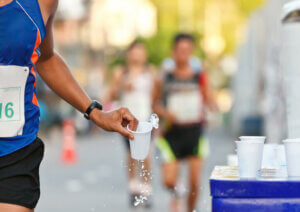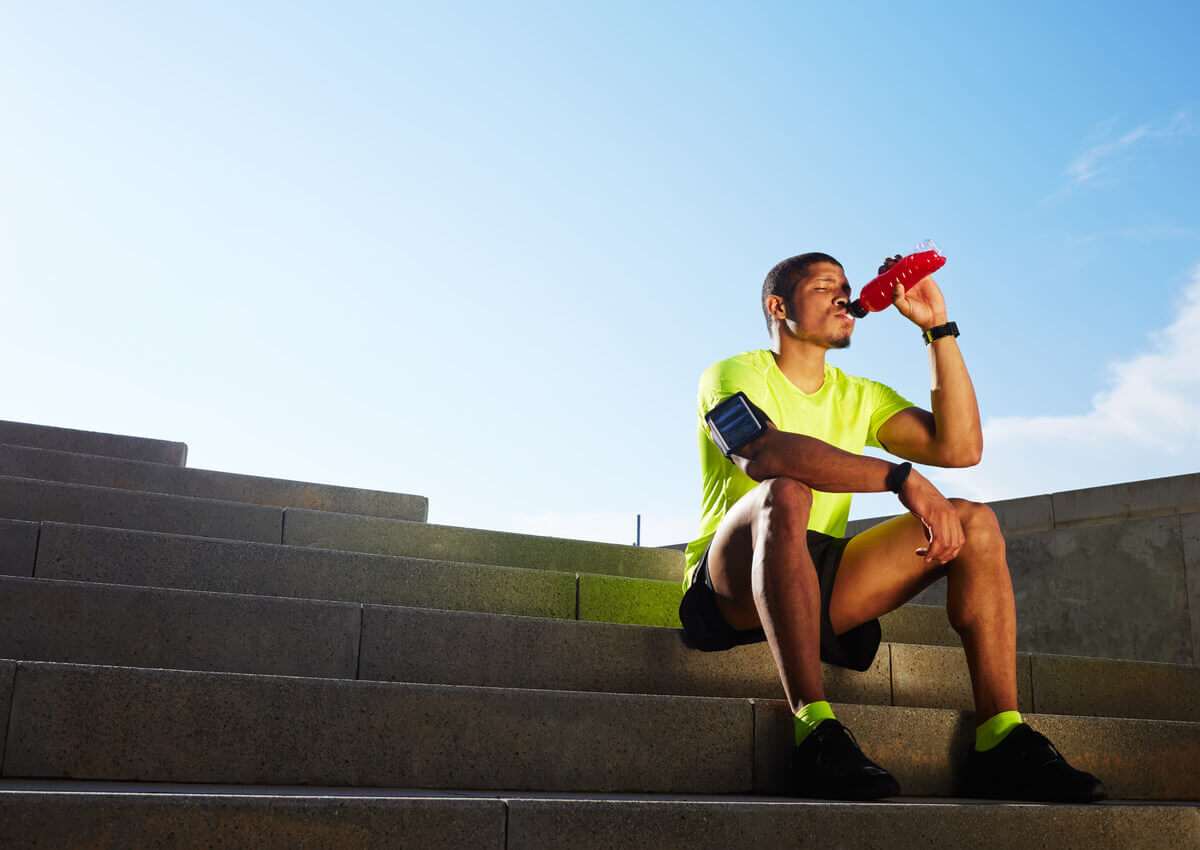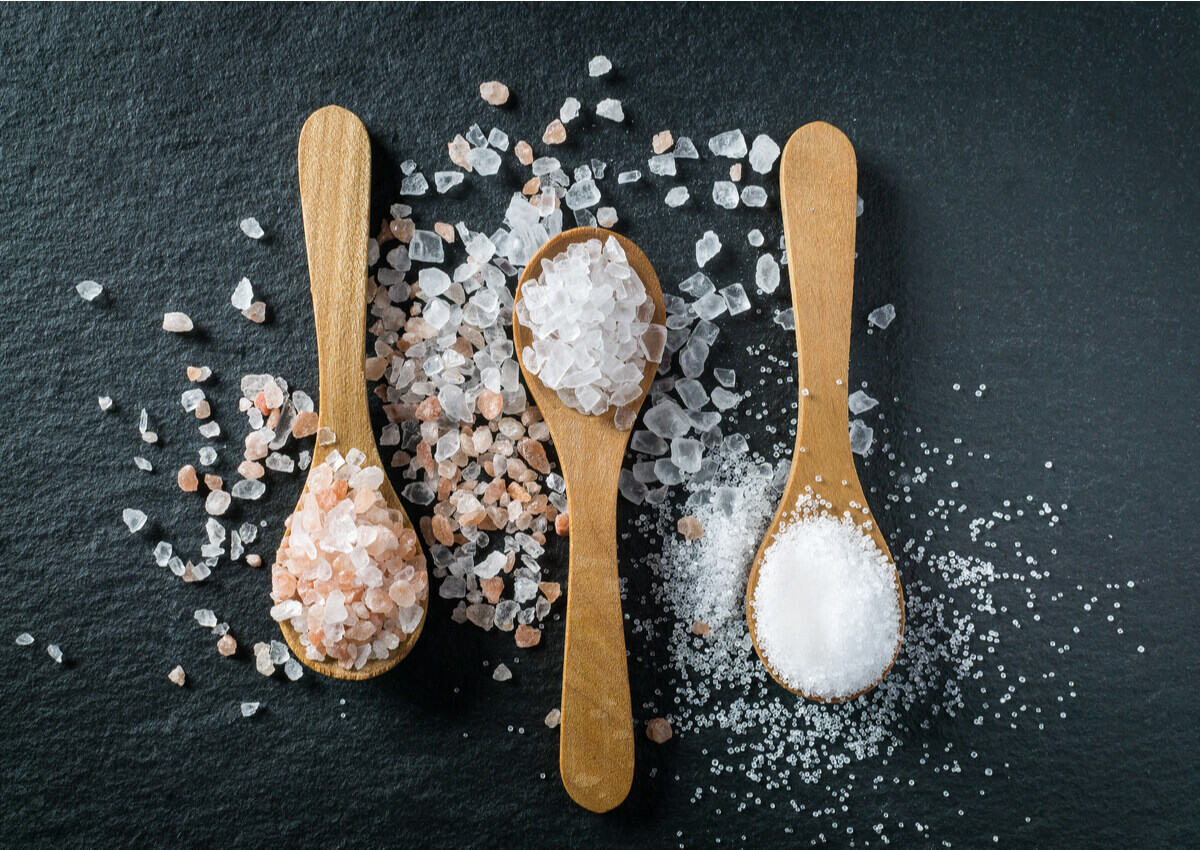The Importance of Sodium in Endurance Sports

Sodium is a mineral that actively participates in the transmission of nerve signals. You can find common salt in most foods. Thanks to its abundant presence in nature, it’s difficult to suffer from a sodium deficiency in normal conditions. However, athletes may need more of this mineral due to losses that occur through sweat. Sodium is especially important in endurance sports, especially when it comes to maintaining electrolyte balance.
Sodium in endurance sports: ensure intake
Losing too much sodium in endurance sports can lead to muscle cramps. Thus, you need to ensure a regular sodium intake.
You can do this by drinking sports drinks enriched with mineral salts. These types of preparations are often rich in carbohydrates to boost performance.
In this regard, an article published in the journal Research in Sports Medicine states that modulating these inflammatory processes is beneficial for improving muscle recovery. However, no articles link the intake of this mineral with boosted performance.
Sodium in endurance sports and the importance of electrolyte balance
If you’re going to undertake an endurance test, it’s essential to guarantee a correct state of hydration and an electrolyte balance. Significant sodium losses can lead to hyponatremia, which is fatal in some cases.

According to an article published in the Journal of the American Society of Nephrology, this situation must be treated with drugs to avoid major complications.
The fundamental cause of hyponatremia is an electrolyte imbalance, either caused by excess water intake (which is unlikely) or by excessive sodium loss through sweat. To prevent this situation, you need to replenish mineral salts if you’re doing physical activities for an extended period.
This is a vital task when you’re competing in very hot and humid conditions. Because of this, it’s crucial to monitor fluid and electrolyte intake to prevent dips in performance associated with dehydration or lack of nutrients.
Add more sodium to foods in the form of salt
An effective strategy to ensure correct sodium levels in athletes consists of adding more salt to foods than usual. This way, they prepare their bodies for the subsequent activity and fill their salt deposits once they finish competing.
Despite this, you shouldn’t just watch your sodium intake. In fact, you must consume the rest of the minerals your body needs to guarantee that you won’t suffer imbalances.
For example, a magnesium deficiency could increase the odds of suffering from muscle cramps, which could completely hinder an athlete’s progress. To meet these requirements, you can add a mineral salt tablet to an adequate amount of water and drink this mixture before practicing endurance sports.
Sodium and mineral salts are very important!

Hydration and electrolyte balance are two factors that can’t boost performance. However, they avoid decline as the competition progresses. Dehydration can negatively affect physical and cognitive performance. In fact, it can even be fatal in extreme cases.
In hot and humid situations, you need to take precautions to guarantee the supply of both nutrients. This way, you’ll prevent unwanted situations.
For this purpose, you can use mineral salt supplements, in addition to consuming the foods and drinks that are offered during the course of the competition. Other valid options are consuming energy gels or crushed fruit. However, in these cases, you first need to test your tolerance to fructose once you start exercising.
Remember that you must accompany a good diet with adequate training to get good results. Also, you need to control your workloads and adjust them to your needs. This way, you’ll be able to act from a nutritional standpoint to create a synergy that ends up boosting your athletic performance.
Sodium is a mineral that actively participates in the transmission of nerve signals. You can find common salt in most foods. Thanks to its abundant presence in nature, it’s difficult to suffer from a sodium deficiency in normal conditions. However, athletes may need more of this mineral due to losses that occur through sweat. Sodium is especially important in endurance sports, especially when it comes to maintaining electrolyte balance.
Sodium in endurance sports: ensure intake
Losing too much sodium in endurance sports can lead to muscle cramps. Thus, you need to ensure a regular sodium intake.
You can do this by drinking sports drinks enriched with mineral salts. These types of preparations are often rich in carbohydrates to boost performance.
In this regard, an article published in the journal Research in Sports Medicine states that modulating these inflammatory processes is beneficial for improving muscle recovery. However, no articles link the intake of this mineral with boosted performance.
Sodium in endurance sports and the importance of electrolyte balance
If you’re going to undertake an endurance test, it’s essential to guarantee a correct state of hydration and an electrolyte balance. Significant sodium losses can lead to hyponatremia, which is fatal in some cases.

According to an article published in the Journal of the American Society of Nephrology, this situation must be treated with drugs to avoid major complications.
The fundamental cause of hyponatremia is an electrolyte imbalance, either caused by excess water intake (which is unlikely) or by excessive sodium loss through sweat. To prevent this situation, you need to replenish mineral salts if you’re doing physical activities for an extended period.
This is a vital task when you’re competing in very hot and humid conditions. Because of this, it’s crucial to monitor fluid and electrolyte intake to prevent dips in performance associated with dehydration or lack of nutrients.
Add more sodium to foods in the form of salt
An effective strategy to ensure correct sodium levels in athletes consists of adding more salt to foods than usual. This way, they prepare their bodies for the subsequent activity and fill their salt deposits once they finish competing.
Despite this, you shouldn’t just watch your sodium intake. In fact, you must consume the rest of the minerals your body needs to guarantee that you won’t suffer imbalances.
For example, a magnesium deficiency could increase the odds of suffering from muscle cramps, which could completely hinder an athlete’s progress. To meet these requirements, you can add a mineral salt tablet to an adequate amount of water and drink this mixture before practicing endurance sports.
Sodium and mineral salts are very important!

Hydration and electrolyte balance are two factors that can’t boost performance. However, they avoid decline as the competition progresses. Dehydration can negatively affect physical and cognitive performance. In fact, it can even be fatal in extreme cases.
In hot and humid situations, you need to take precautions to guarantee the supply of both nutrients. This way, you’ll prevent unwanted situations.
For this purpose, you can use mineral salt supplements, in addition to consuming the foods and drinks that are offered during the course of the competition. Other valid options are consuming energy gels or crushed fruit. However, in these cases, you first need to test your tolerance to fructose once you start exercising.
Remember that you must accompany a good diet with adequate training to get good results. Also, you need to control your workloads and adjust them to your needs. This way, you’ll be able to act from a nutritional standpoint to create a synergy that ends up boosting your athletic performance.
All cited sources were thoroughly reviewed by our team to ensure their quality, reliability, currency, and validity. The bibliography of this article was considered reliable and of academic or scientific accuracy.
- Hoorn EJ., Zietse R., Diagnosis and treatment of hyponatremia: compilation of the guidelines. J Am Soc Nephrol, 2017. 28 (5): 1340-1349.
- Hoffman MD., Stuempfle KJ., Does oral buffered sodium suplementation reduce nausea and vomiting during an ultramarathon? Res Sports Med, 2016. 24 (1): 94-103.
This text is provided for informational purposes only and does not replace consultation with a professional. If in doubt, consult your specialist.








